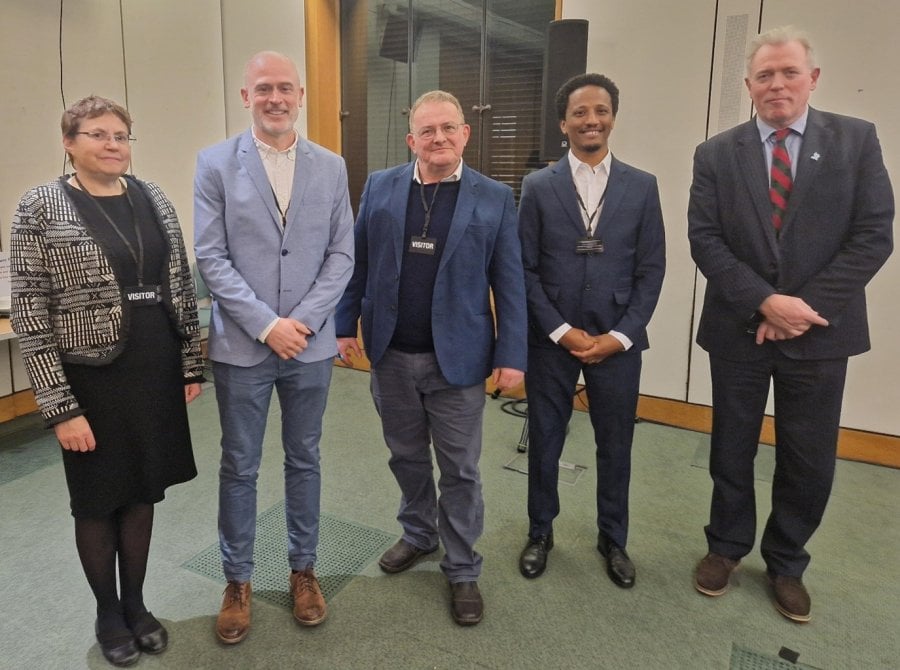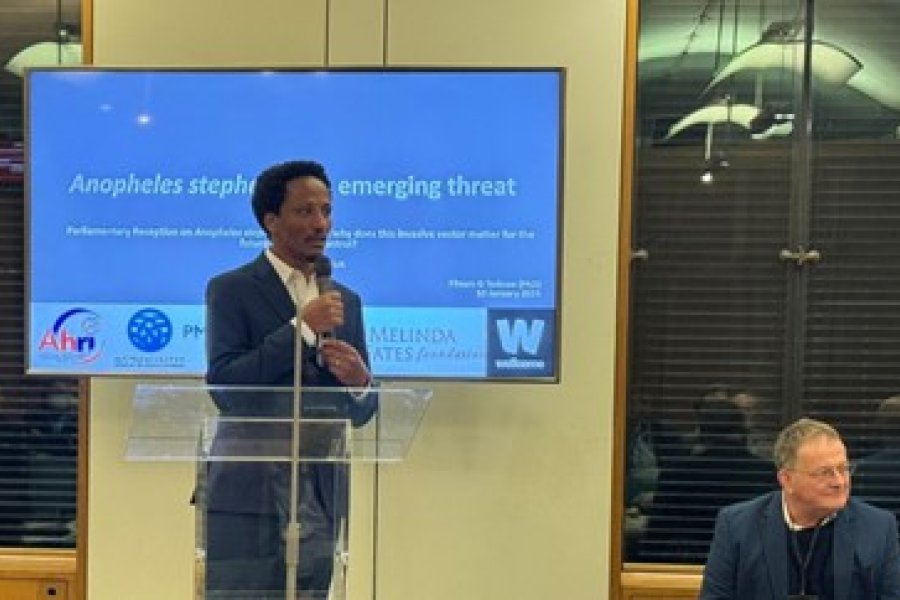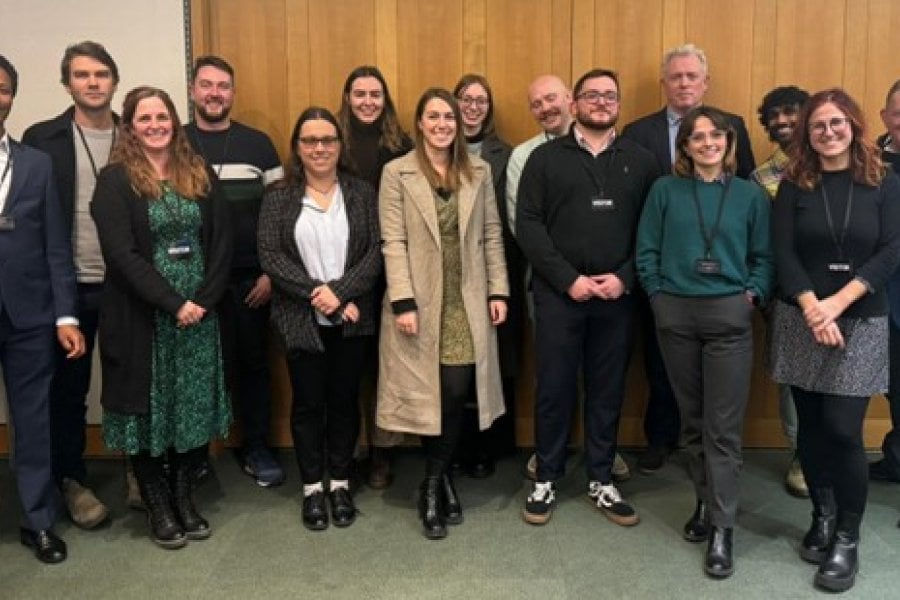On January 10, the RAFT (Resilience Against Future Threats through vector control) Consortium from LSHTM held a reception and panel discussion on the malaria vector, Anopheles stephensi, at the UK Houses of Parliament, Portcullis House, London.

The event was supported by the All-Party Parliamentary Group on Malaria and Neglected Tropical Diseases, and the Malaria Consortium.
An. stephensi was first identified over 120 years ago in Asia, where it transmits malaria in several countries. In 2012 this species was reported for the first time in Africa in Djibouti, and has since been found in another 8 African countries. An. stephensi’s ability to thrive in urban environments by breeding in man-made water sources sets it apart from the familiar species An. gambiae and An. funestus. As a result, it can transmit malaria in large towns and cities, putting many millions of people at risk.
The event aimed to raise the profile of this vector’s emergence in Africa and bring together experts and stakeholders from a variety of fields and backgrounds. Entomologists, epidemiologists, environmental scientists, NGOs, and private and public sector representatives from across the UK, Africa, South Asia and the Middle East joined in-person and online.
Dr Fitsum Tadesse, a Wellcome Trust Fellow at the LSHTM and the Armauer Hansen Research Institute in Ethiopia, emphasised that An. stephensi is now well-established year-round in the Horn of Africa and has recently been implicated in an urban dry-season outbreak. discussed the activities that WHO is undertaking to prevent the expansion of An. stephensi, including the launch of an initiative to combat the vector’s spread, maintenance of the Malaria Threat Map, and convening quarterly calls with experts and stakeholders from around the world to discuss new findings.
Professor Jo Lines, the Co-Director of RAFT, closed the presentations by reflecting on the need for a strategic shift: “Urbanisation has been playing a big role in reducing malaria in towns and cities in Africa. We have somehow come to accept that slowly but surely, development would gradually build malaria out of Africa. With An. stephensi in Africa, we have to think again.”
Asked how the vector is spreading, Dr Irish identified this as an area needing future investigation and highlighted existing studies on international shipping and egg desiccation. Teams also continue to find An. stephensi along transportation corridors and around ports of entry, said Dr Tadesse
However, surveillance is lacking in some regions and the true extent of An. stephensi remains uncertain.
Director of the International Society for Neglected Tropical Diseases, Marianne Comparet spoke about the significance of the event saying; “Events like this are a much needed beacon in galvanising advocacy and collaborations across public health, vector control, urban planning, water & sanitation and international cooperation at the highest levels.”
A key priority highlighted by Professor Lines was cross-sectoral response. During the panel discussion, Robert Bos, who works with the International Water Association, echoed this point by commenting on the role of urban planners and Water Sanitation and Hygiene (WASH) experts in the response to this container-breeding species.
Key Messages:
- The ongoing spread of Anopheles stephensi in Africa puts millions of people at increased risk of malaria, due to its ability to breed in urban areas.
- The invasive species has been associated with urban outbreaks in the Horn of Africa.
- The WHO continues to track the spread of An. stephensi and support international collaborations for preparedness and response.
- We must reconsider our assumption that urbanisation will aid in the long-term fight against malaria in Africa.
- We must continue breaking down silos between the malaria community and WASH and urban development stakeholders.
LSHTM's short courses provide opportunities to study specialised topics across a broad range of public and global health fields. From AMR to vaccines, travel medicine to clinical trials, and modelling to malaria, refresh your skills and join one of our short courses today.


